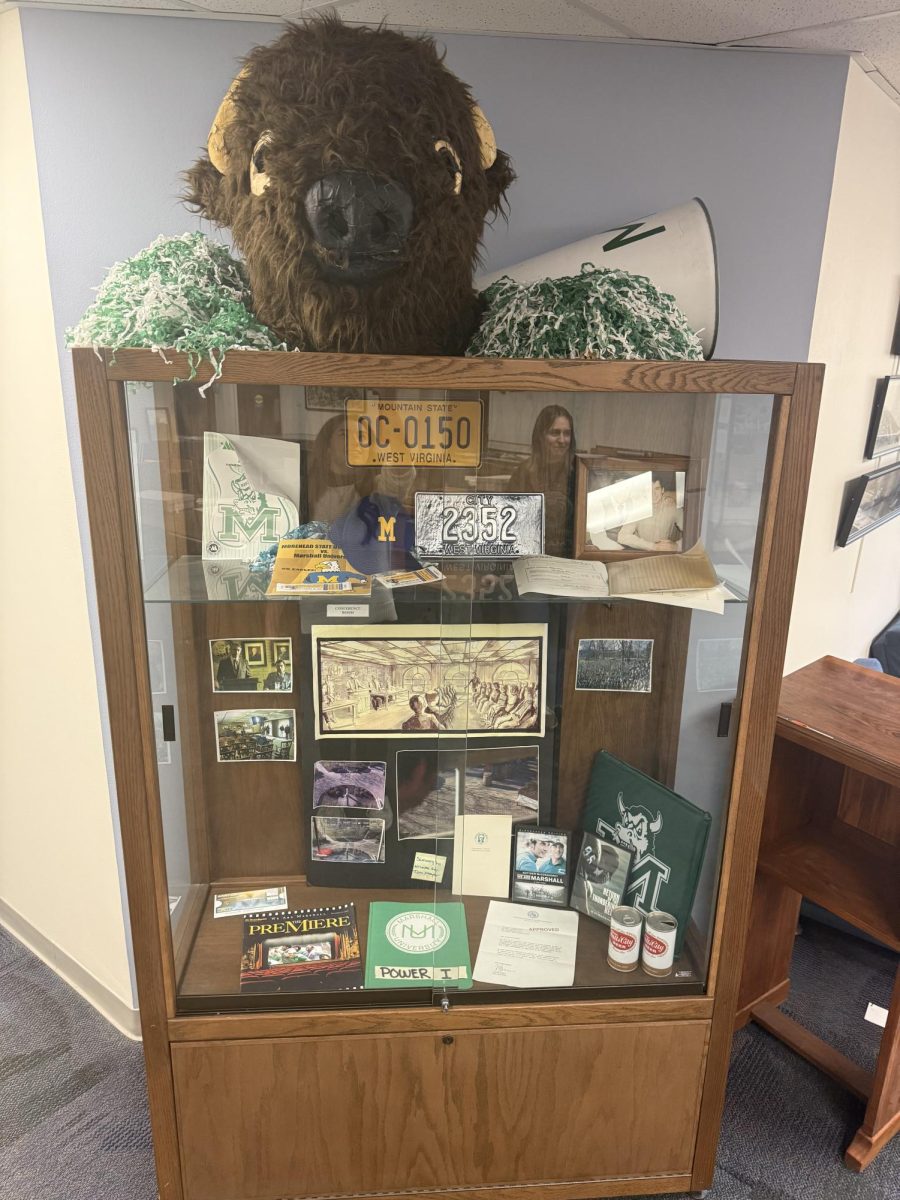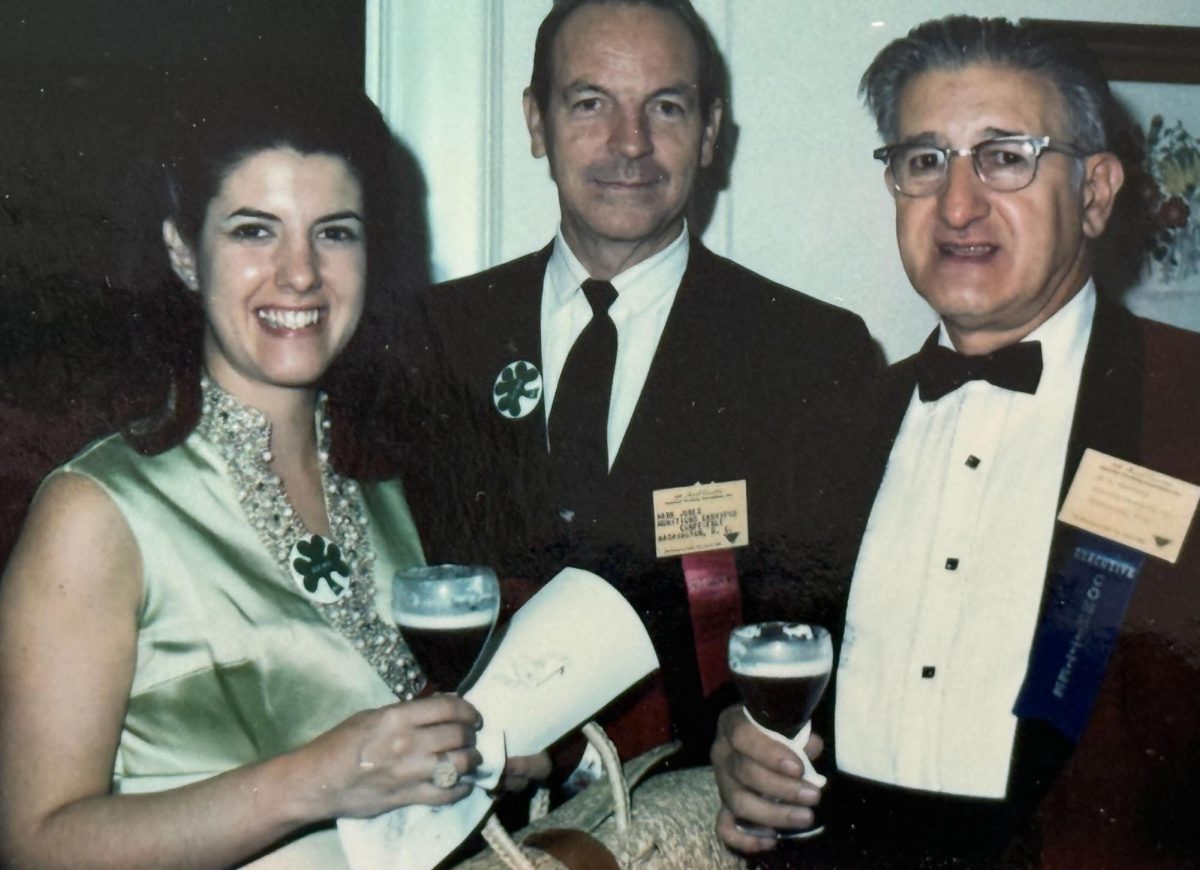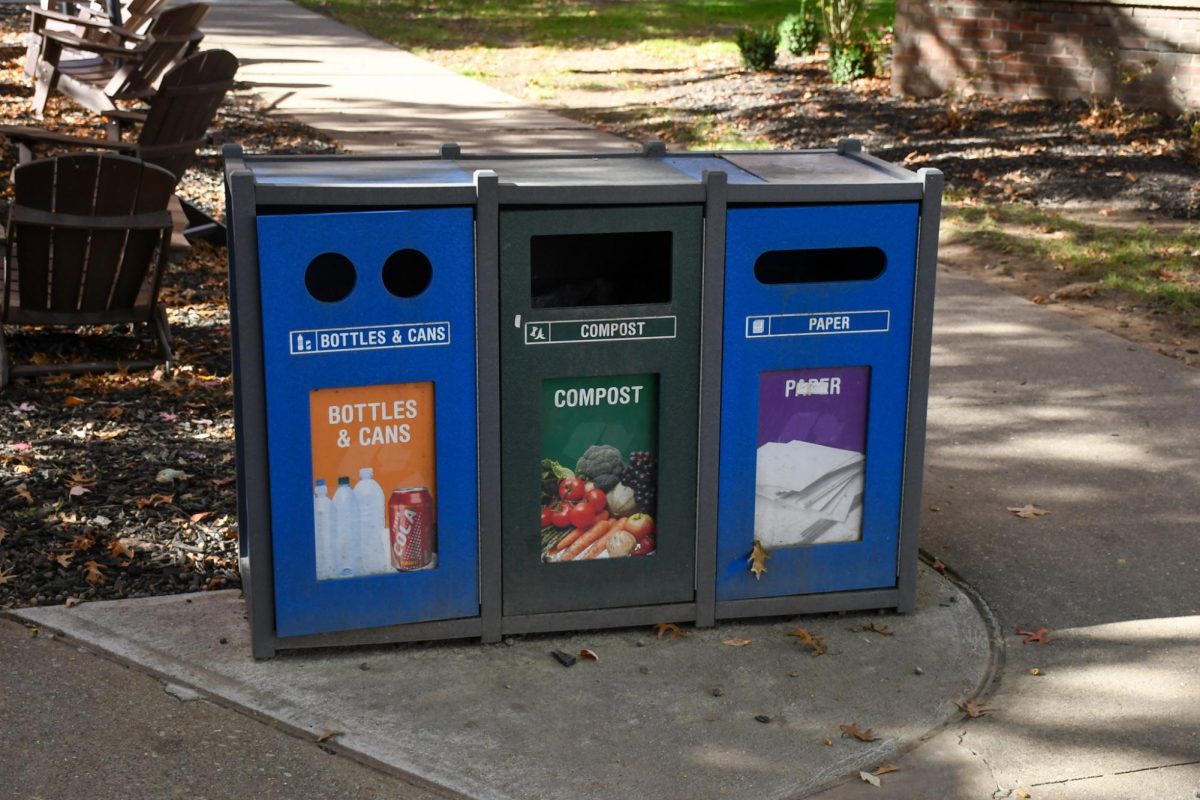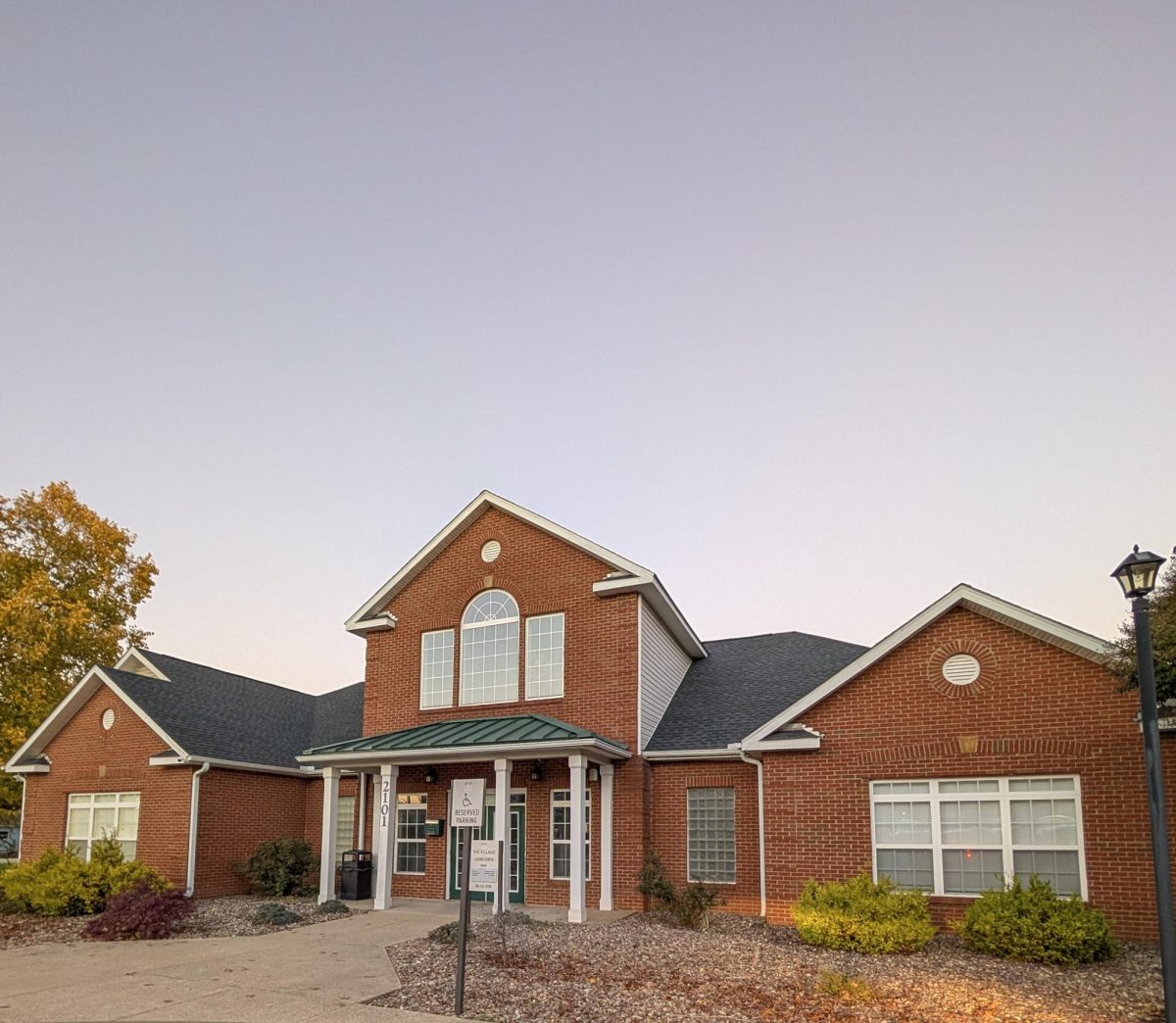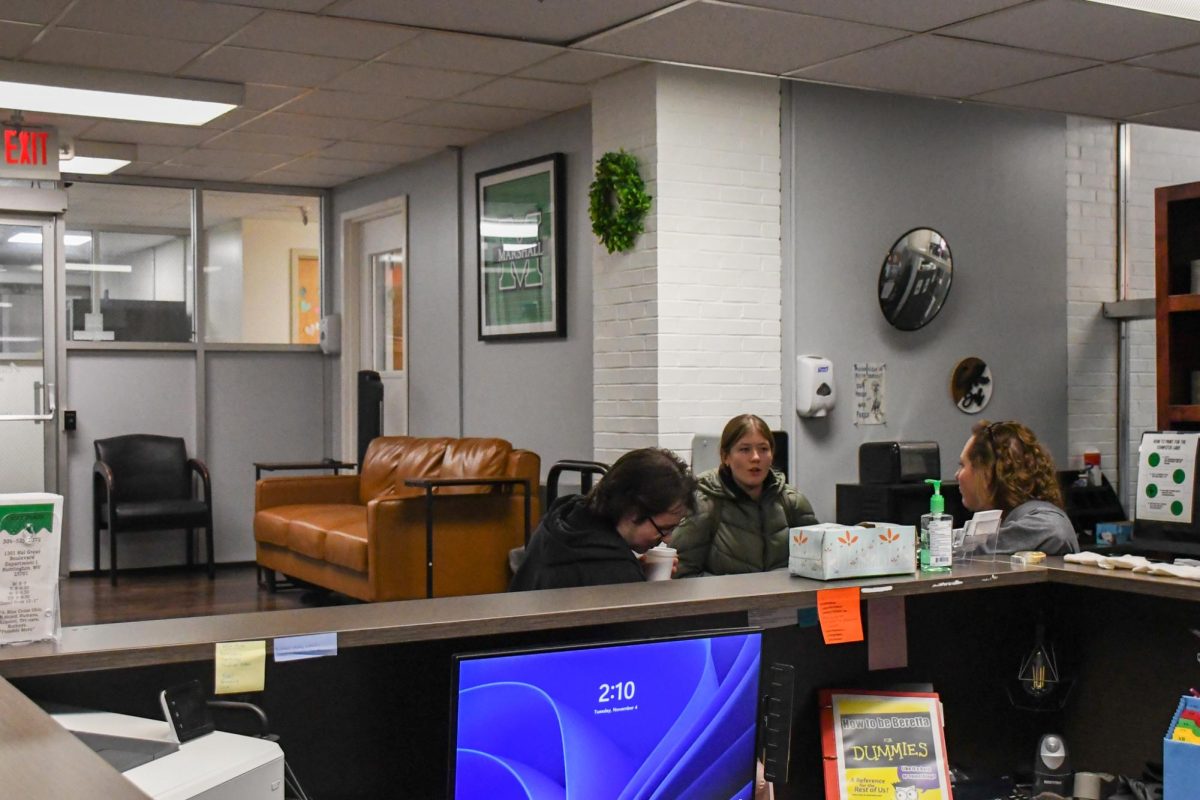The first stirrings of a legal career took root in a young woman spending time in her grandmother’s bar in Hamlin, West Virginia, one U.S. circuit judge said.
Stephanie Thacker, judge for the United States Court of Appeals for the Fourth Circuit, said at the sixth Alys Smith Symposium for Women Professionals on April 1 that her grandmother’s tough nature taught her many lessons applicable in law.
“The bar gave me the opportunity to just observe and listen to people from all walks of life,” Thacker said in her keynote address. “Three good backdrops — learning, listening and observing — I learned in that bar.”
A Marshall alumna, Thacker served as a federal prosecutor for 12 years, both at the United States attorney’s office for the southern district of West Virginia as well as the Department of Justice in the child exploitation and obscenity section.
Despite Thacker’s extensive legal resume, she said she went to law school purely as a result of her mother’s persuasion.
“I went to law school, and when I got there, I said to myself, ‘What am I doing here,’” Thacker said. “Somehow, I had the foundation and the building blocks to put it all together.”
In September of 2011, Thacker was nominated by former President Barack Obama to fill a vacancy on the Fourth Circuit Court of Appeals, where she was later confirmed by the United States Senate in April of 2012.
However, the decision to be put on the list for nominations for the position was one Thacker did not take lightly.
“I just parked and got out and sat under a tree, which is frequently where I am when I make tough decisions,” Thacker said. “I ultimately thought, ‘What could it hurt to keep my options open?’”
The symposium also included a panel discussion featuring four additional female legal professionals, including Melissa Blatt, assistant vice president of claim litigation at Encova Insurance; Christine Jacobs, licensed attorney and judicial law clerk in the circuit court of Kanawha County, West Virginia; Mattie Shuler, associate attorney at Steptoe and Johnson, and Arminta Spaulding, paralegal and law office administrator.
The panelists delved into their resumes in the legal fields as well as touched on advocacy and experiences as women in a primarily male-dominated field.
“One of my worst nightmares is having lunch with male colleagues, and the waiter referred to them as ‘sir’ and called me ‘sweetheart,’” Blatt said. “It’s a man’s world, but I see it changing; you have to speak up and not let that get in your head.”
Similarly, Shuler said while working in a male-dominated field, her gender has provided her with certain innate advantages.
“I think women have a better way of connecting with people inherently,” Shuler said. “That’s what you need when you have to connect with colleagues, your staff or even the witness on the stand.”
In addition, several panelists emphasized the importance of not bringing the workplace home, especially in an emotionally-charged field.
“When you go home, you have to turn it off,” Spaulding said. “It does play in your mind, but you have to try to turn it off, or it will affect your household.”
To mirror this, Shuler said in a post-COVID world, work-life balance remains more attainable for those who seek it, but more importantly, there is no one size fits all cure to balance.
“You can read every self-help book or watch every TikTok from Mel Robbins, and it can make you feel terrible,” Shuler said. “If you’re going to maintain work-life balance, you have to do it in a way that is best for you.”
As a licensed attorney, Alys Smith said like the symposium’s panelists, she believes a career in law has many layers, with new learning opportunities presenting themselves frequently.
“There’s something you are going to learn that you take with you to the next thing; even if you pivot out of law, those lessons stay with you,” Smith said.
Kaitlyn Fleming can be contacted at fleming115@marshall.edu.



